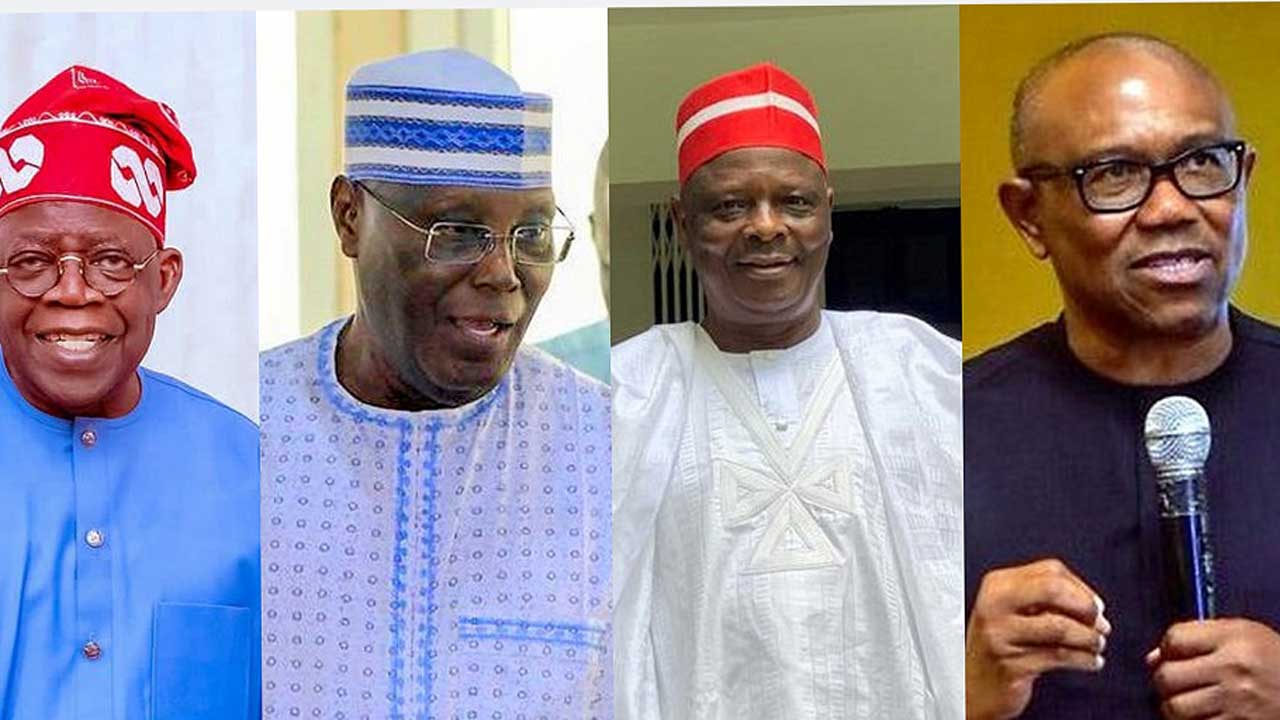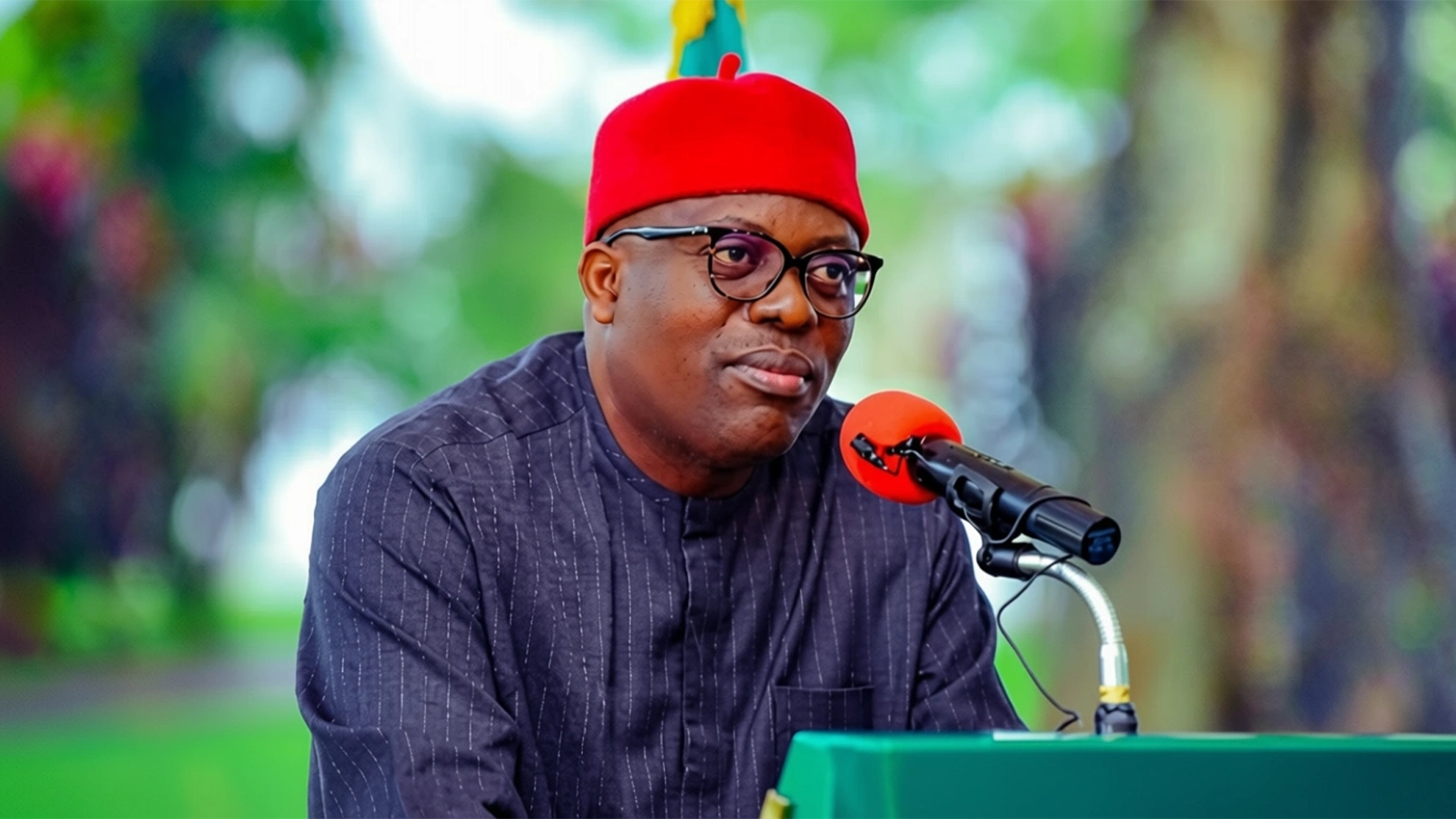 • Blame Tinubu, APC for PDP crisis, says Ologbondiyan
• Blame Tinubu, APC for PDP crisis, says Ologbondiyan
• Analysts warn of growing desperation in Nigerian politics as APC gains ground
• Party supremacy, indiscipline bane of opposition parties
Beaten black and blue by internal conflicts, Nigeria’s major opposition parties may have unwittingly reinforced perceptions they’d never be able to provide viable alternatives to the ruling All Progressives Congress (APC) government.
The internal wranglings within the Peoples Democratic Party (PDP) and the Labour Party (LP) have resulted in embarrassing disarray, with both parties persistently unable to muster a semblance of internal unity.
The lack of cohesion is considered a significant contributing factor to Nigerians’ difficulties, particularly in the aftermath of the removal of fuel subsidies and the floating of the naira.
A healthy democratic system relies on a vibrant opposition to offer alternative policies and hold the government accountable. However, the current state of the opposition, particularly the PDP and LP, raises doubts about their readiness to challenge the APC’s armada in the 2027 elections. The ruling behemoth has mainly been unopposed in executing its policies, as the distracted opposition becomes too feeble to throw any significant punch.
The crises within the PDP and LP could be traced to a lack of party ideology, weak discipline, and a focus on personal interests over party supremacy. Some critics have also blamed the judiciary for failing to resolve political disputes promptly, allowing conflicts to fester.
President Bola Tinubu and the APC have been the principal harvesters of the opposition’s juicy disunity. With no practical challenge from the once-formidable foes, the APC has been able to implement its policies with little or no scrutiny and is now preparing for the 2027 elections. There are also concerns that moles are being deployed to deepen the crises in the PDP and LP.
Many argue that the APC and Tinubu cannot be blamed for the opposition’s dysfunction. In the case of the PDP, the party’s failure to uphold its constitution on zoning and the refusal of former national chairman Iyorcha Ayu to step down after a Northerner emerged as the presidential candidate have been cited as key factors in its decline. This pre-election crisis, which the party’s presidential candidate, Atiku Abubakar, failed to resolve, severely undermined its chances in the 2023 general elections.
The formation of the G-5 group, led by former Rivers State Governor Nyesom Wike and Oyo State Governor Seyi Makinde, further deepened the crisis in the PDP. The G-5 insisted the party must respect its zoning agreement, opposing the idea of the presidential candidate and national chairman coming from the North. When their efforts to resolve the issue failed, the G-5 publicly backed APC candidate Asiwaju Bola Tinubu in the 2023 presidential election, pushing the latter to victory.
Contrary to expectations that G-5 members would defect to the APC after the elections, the ongoing political dynamics have proved otherwise. President Tinubu has since capitalised on the divisions within the PDP, appointing Wike as Minister of the Federal Capital Territory (FCT) and offering political appointments to other G-5 allies within the PDP. This strategic move has further debilitated the party and solidified Tinubu’s influence.
Recently, President Tinubu appointed Joseph Olasunkanmi Tegbe as Director-General and Global Liaison for the China Strategic Partnership to ensure Nigeria benefits from the $51 billion deal promised by President Xi Jinping during Tinubu’s visit. Tegbe, a member of the PDP and political associate of Governor Seyi Makinde, now holds a key position within the government.
As a cabinet member, Wike is reportedly empowered to influence how the PDP runs its affairs. This has deepened divisions within the party’s leadership, affecting the Board of Trustees (BoT), National Working Committee (NWC), National Executive Council (NEC), and the Governors’ Forum. Some state chapters of the PDP are now split between pro- and anti-Wike factions.
When some PDP governors referred Wike to the party’s disciplinary committee after he threatened to “put fire” in their states, the committee stalled, and Wike has yet to be summoned for questioning. Reports suggest that Wike has been able to disrupt governance in Rivers State, creating challenges for Governor Similaya Fubara. This has allegedly been made possible with the support of security agencies and the judiciary, backed by the presidency. Critics argue that if Tinubu had reined in Wike, the PDP and Rivers State crises could have been resolved.
The PDP is now in utter turmoil, with some members, like Ayodele Fayose, declaring that only “divine intervention” can save the party. As the party remains weakened and fractured, the APC’s chances of securing victory in the 2027 general elections will continue to improve.
The Labour Party is also on the brink of collapse in its flank, plagued by irreconcilable leadership disputes. Before Peter Obi, the LP’s presidential candidate in the 2023 general elections, joined the party in 2022, the LP was regarded as a “special purpose vehicle” in political circles. Attempts by the Nigerian Labour Congress (NLC), led by Joe Ajaero, to reform the party were resisted by powerful forces within.
The party’s convention, which could have been a turning point, was reportedly mishandled, preserving the status quo. This led Peter Obi and the party’s only governor, Alex Otti, to hold a stakeholders’ meeting in Abia State, where they established a 29-member caretaker committee led by former Minister of Finance Nenadi Usman. However, Julius Abure’s leadership challenged this in court and secured a judgement validating the Nnewi, Anambra State convention, where he was elected.
The Usman-led caretaker committee has vowed to appeal the judgement. Still, many are sceptical about a favourable outcome for those attempting to rescue the party and reposition it as a viable opposition force in Nigeria.
Meanwhile, the New Nigeria Peoples Party (NNPP), which produced Kano State Governor Abba Yusuf, is also undergoing internal strife. The party is divided between its 2023 presidential candidate, Rabiu Kwankwaso, and its Board of Trustees (BoT) chairman, Boniface Aniebonam. Sources allege that some disgruntled NNPP members have been infiltrated by the APC, further destabilising the party.
There is a growing conspiracy theory among opposition members that President Tinubu and the APC are behind the internal crises weakening the major opposition parties. Former PDP National Publicity Secretary, Kola Ologbondiyan, told The Guardian that the APC and Tinubu should be blamed for the turmoil within the PDP, claiming that “the politics of 2027 is already playing out” and that Tinubu and the APC are trying to stifle viable opposition ahead of the elections.
However, Ologbondiyan expressed optimism that the PDP will overcome its current challenges, stating that the party will emerge stronger by next year. On the other hand, embattled PDP National Publicity Secretary Debo Ologunagba declined to comment on the ruling party’s influence in the PDP’s internal crisis. He acknowledged that the party faces significant challenges that have hindered its ability to function effectively as an opposition force.
The prospects of the Labour Party presenting a viable challenge to the APC in 2027 are equally uncertain. In fact, given the ongoing internal issues plaguing the party, there are indications that LP may not field Peter Obi as its presidential candidate.
Speaking to The Guardian, Tanko Yinusa, spokesperson for the Labour Party’s presidential candidate, acknowledged the need for opposition parties to unite and build internal cohesion to effectively provide alternative policies and rescue Nigeria from its current challenges. Yinusa further stated that the ruling All Progressives Congress has put mechanisms in place to weaken opposition parties and align government institutions related to elections and security in its favour for the 2027 elections.
Okorie also told The Guardian that Nigerians should anticipate a realignment of political forces that will shake the ruling party and challenge those obstructing democratic progress.
“There will be a significant realignment of forces from the second quarter of next year. What I mean is that some key figures within the PDP will abandon the party when they realise it has become a one-man show. Similarly, those who believe they helped Tinubu become president will leave the APC and discover that no single region can dominate the presidency. All these movements will eventually coalesce elsewhere.”
Okorie continued, “The political landscape of 2027 will be very different from what we are seeing now. Meetings and strategies are already in motion, and I believe the opposition will come together before long. If anyone thinks the opposition has given up, they are mistaken.”
This came as Wale Okunniyi, Director-General of NCFront and secretary of the Mega Party, confirmed that the Obi-dient Movement might seek a new platform if the internal crisis within LP is not resolved by the end of next year.
The Chairman of the Board of Trustees (BoT) of the New Nigeria Peoples Party (NNPP), Boniface Aniebonam, echoed concerns about the weakness of the current opposition, describing the political landscape as dominated by “merchants” prioritising personal gain over national interest.
Aniebonam said, “Nigeria lacks a responsible opposition. Today’s opposition figures are more interested in personal gain than in advancing the country’s well-being. The ruling party can easily gauge the strength of the opposition and exploit it.”
He also criticised the PDP’s current state, saying, “The PDP is not stable, and Nigerians shouldn’t expect any change from the NNPP, SDP, LP, or any other opposition party as they currently stand.”
Olu Agunloye, a national leader of the Social Democratic Party (SDP), stressed the importance of unity among opposition parties if they are to challenge the ruling APC effectively in the 2027 general elections. “Nigeria doesn’t need a blind opposition. The opposition parties must come together and form a cohesive force to speak for the good of the country,” he said.
Comrade Ibuchukwu Ezike, an LP chieftain, accused the judiciary of being manipulated to undermine democracy, citing the restoration of Julius Abure as LP’s chairman despite his expired tenure as evidence.
Ezike lamented, “The judiciary has become a tool for destroying democracy and good governance. Justice now goes to the highest bidder.” He warned that the ongoing crises within opposition parties, fuelled by judicial interference, may render them unable to play a meaningful role in 2027.
Ezike further stated, “Nigerians must rise and take back their country. The opposition is in disarray, and the country is sinking into corruption, mismanagement, and poverty. Those in power think they can continue like this until the next election, but they are mistaken. Destroying the opposition will not save them.”
Political analyst Dr Geoffrey Nnaji also weighed in, saying the current state of opposition parties reflects the ruling administration’s desperation to silence dissent. “The APC has won every off-season election by controlling the courts and the Independent National Electoral Commission (INEC).
“They are confident in their strategy, often challenging opponents to take their grievances to court, knowing they have control over the judiciary. However, this situation is a ticking time bomb; sooner or later, people may take matters into their own hands, leading to a forceful change in the system.”
Despite the prevailing challenges, All Progressives Grand Alliance (APGA) BoT Chairman Chief Chekwas Okorie expressed optimism. He dismissed claims that opposition parties have surrendered, even with the suppression and internal crises they face.






